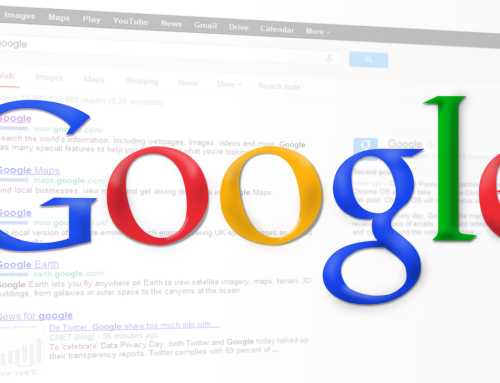Google Discover
I’m totally interested in Google’s Discover Feed. Other than the way that it serves profoundly applicable substance, it additionally appears past the span of being gamed. As it were, it nearly appears past the compass of unadulterated SEO (which makes it tremendously tempting for me).
Everything makes you need to comprehend what really matters to the feed. Allow me to clarify, it gives you a superior comprehension and points out its vast limits.
As such, perceive how Google responds to different practices. To do this, you can look for things you would by and large never look for, and restrict your typical inquiry conduct now and again so as not to impact the feed.
For instance, disdain big-name news and tattle with energy, and look through different sites without clicking a thing. At that point record whenever related material (for example superstar hogwash) wound up in your Discover Feed the following day.
Record the entirety of your different “web practices” similarly. Then you would execute given conduct (for example look for things identified with a particular theme on portable, yet without clicking any outcomes) and record what occurred in the Discover Feed as time went on.
Here’s a breakdown of the different practices executed alongside the points related to every conduct. (For the record, every conduct compares to a solitary point or site so you could decide the effect of that conduct on your Discover Feed.)
Permit to rapidly expand on the practices above:
These are largely points/destinations that are not the slightest bit intriguing or engaging with (especially self-improvement vehicle fix).
When you click on a YouTube video, watch the whole thing (I mean, don’t really observe a fraction of the time, yet Google doesn’t realize that either… isn’t that right?)
At the point when you visit a site, look through the substance and stay on the page for a piece. A quest for a “fragment of a subject previously existing in Discover Feed” implies that the general theme was something that consistently showed up in the feed (for this situation, NFL football, and MLB baseball). Notwithstanding, the subtopics, for this situation the Cowboys and Marlins, were subjects that someone would never explicitly looked for and didn’t show up in the feed.
The entirety of this focuses on different limits. Is it conceivable that Google sees a point like amusement news as more “Find commendable” than sewing? It is. Is it conceivable that going to a site like Fandango during a pandemic (when numerous auditoriums were shut) impacted Google’s choice to incorporate or bar things identified with the point matter managed by the site? It is.
Consider the possibility that you didn’t skirt the ends of the week and executed the over each and every day. Would that have had an effect? I don’t have a clue. I’m making an effort not to depict any of the information I’ll present as being excessively definitive. This is just what you can do, what you can find, and everything that can make you think about.
How about we have at it at that point.
Before I jump into the “information”, I need to call attention to that the core of my perceptions isn’t found in the actual information, however, in a portion of the things, seen in the Discover Feed en route.
More than that, this information is a long way from decisive or concrete, and in many ways addresses my interesting client profiles. All things considered, how about we examine the information, in light of the fact that there just might be some broad takeaways.
As referenced, it is needed to see the effect of the different online practices on your Discover Feed. That is, how regularly Google embed content identified with the subjects related to every particular conduct into the feed?
For every one of the occasions, I went to japantimes.co.jp how frequently was there content in my channel identified with Japanese news? For every one of the occasions I looked for and watched YouTube recordings on yard care, how frequently did Google show me such substance in Discover?
Here are probably the most barging in features reflected in the diagram above:
Watching YouTube recordings on versatile no affected the feed at all (however it positively did on what YouTube advertisements I was served).
Watching YouTube recordings on the work area has little effect (indeed, any addition of “sewing” into my feed was distinct as a point card that contained no URL).
Looking on Google alone, without clicking an outcome, was inadequate.
Visiting a work area site and clicking around was compelling at filling your feed with “cooking” content, anyway, the equivalent was false on versatile.
Watching YouTube recordings (work area) about sewing was just effective in getting Google to remember the subject for its “Find more” cards.
I need to underline that when I make statements like “YouTube versatile watches had no effect”, I don’t imply that as an overall assertion. Or maybe, such an explanation is just lined up with the manner in which I drew in with YouTube (one video watch each day). Plainly, and as is self-evident, in the event that you watch countless YouTube recordings around one point in a brief timeframe, Discover will get this.
You needn’t bother with me to reveal to you that if Google believes you’re going gaga over a particular theme, it will toss said point into your Discover Feed quickly.
My objective altogether of this was not to perceive what is the speediest method to get Google to refresh the points it shows in your Discover feed. The point in the technique was to check whether there was one kind of conduct that Google appeared to treat more appropriately than another versus embeddings new themes into my Discover Feed.
To that, Google did respond any other way to different practices.
That doesn’t mean you can make numerous ends dependent on the above information. For instance, Google unmistakably saw that going to foodnetwork.com and tapping on an article every day as a solid sign that “cooking” has the right to be in the Discover Feed.
Google was well-suited to think about the conduct of visiting foodnetwork.com and clicking an article every day as a support for needing “cooking” content in the Discover Feed.
Simultaneously, Google totally overlooked that conduct on portable. Every day I went to japantimes.co.jp and looked through an article. However, not once googled remember anything even distantly identified with Japanese news for my channel.
I speculate that the point here was excessively far taken out from by and large pursuit conduct. So while it was sensible for Google to accept I needed cooking-related material in my feed, the equivalent didn’t remain constant for points identified with Japan.
I think this is a similar motivation behind why the subject related to my meeting a site on the work area without clicking anything made it into my feed. The point here was big-name news, and I envision that Google has profiled this theme as being one that is profoundly applicable to Discover. To such an extent that Google tried remembering it for my feed at different focuses.
In spite of always failing to tap on an article when visiting people.com every day, Google actually played with showing big-name news content in my Discover Feed.
All things considered, there is some motivation to accept that work area conduct has a greater amount of an effect than portable client conduct.
The case for work area Discovers Feed predominance
Settling on these sections was very simple. The feed is continually loading up with material on baseball and American football. In this manner, I chose to look for and click on two groups I have no interest in. Along these lines, while the subject, in general, was at that point in my feed, I would have the option to see the effect of my conduct.
In particular, in the work area, I looked for things identified with the Dallas Cowboys, tapping on an item each time. Essentially, I did likewise for the Miami Marlins ball club on portable.
Once more, in the two cases, content explicit to these groups presently couldn’t seem to show up in the feed.
Once more, similarly as in the previous set of information I introduced, a difference between versatile and work area exists.
Is this an overall guideline? Is this dependent on my specific profile? I don’t have the foggiest idea. It’s simply a fascinating point that ought to be examined further.
If you would like to speak to an expert in Google Discover, then don’t hesitate to get in touch with Mobloggy. Their friendly and professional team will be more than happy to help.






